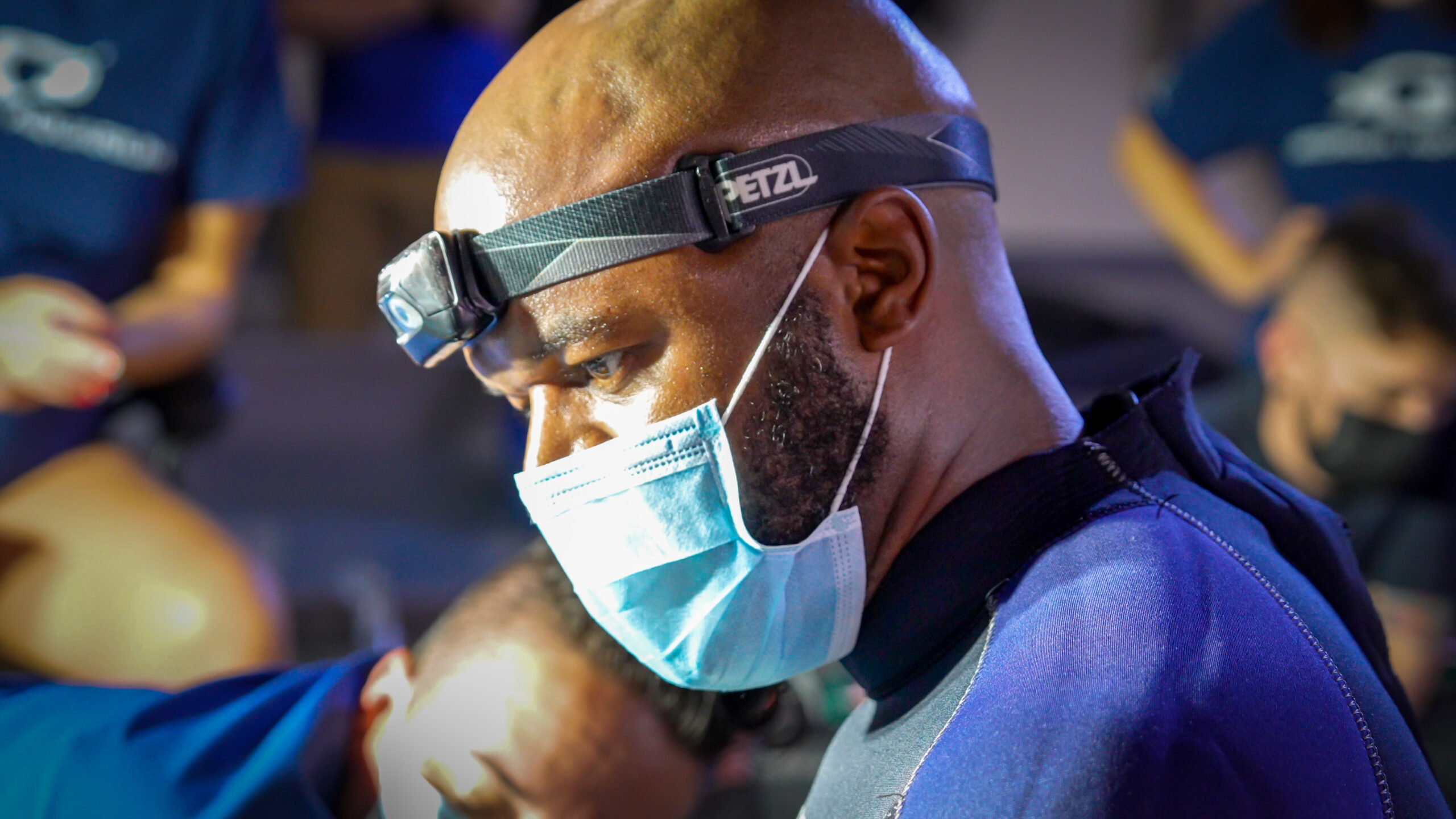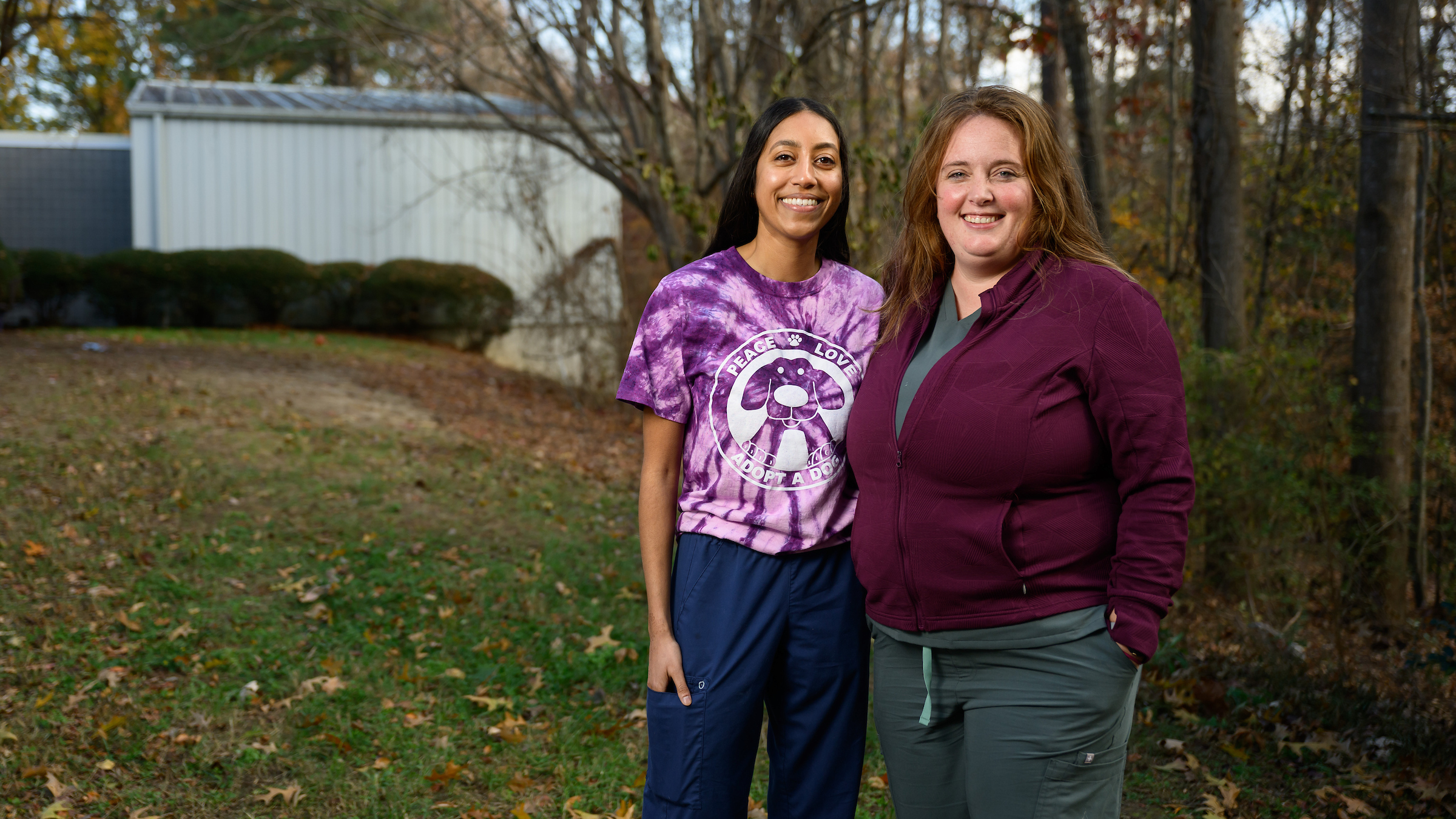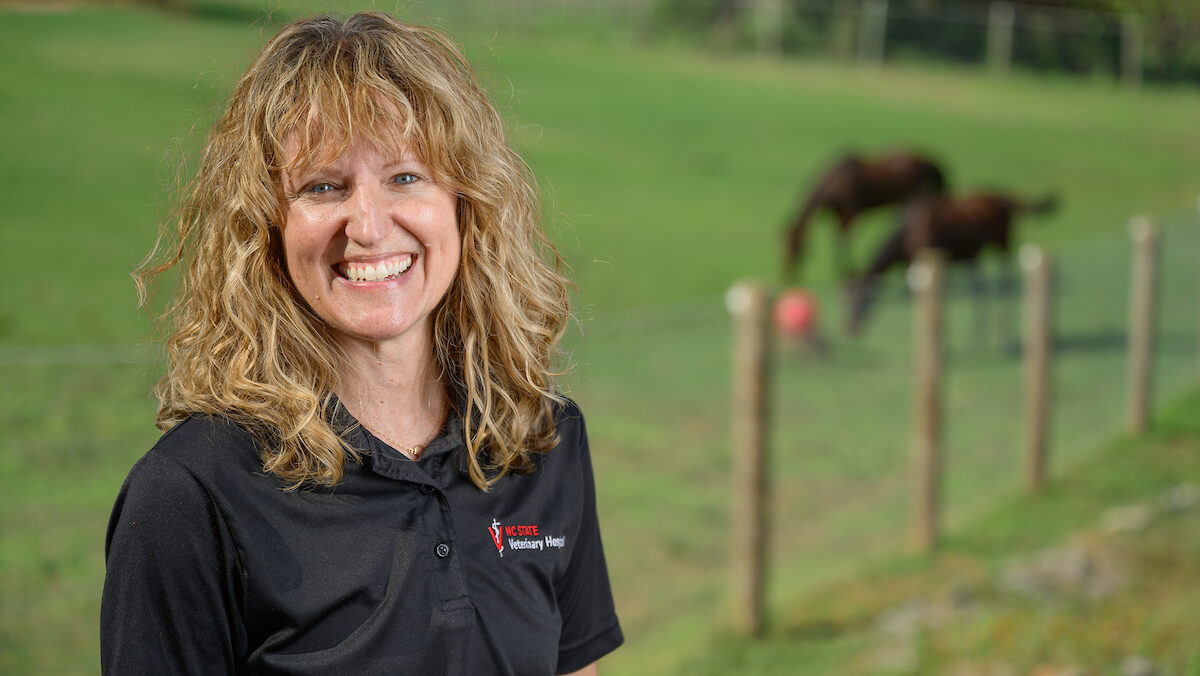Meet the NC State Alumnus Making Veterinary Medicine More Inclusive, From Racial Representation to Mental Health
Since earning his DVM in 2013, Dr. Quincy Hawley has worked diligently to help veterinarians feel like they belong in the profession, sometimes while navigating that challenge himself.

The only Black man to graduate in the NC State College of Veterinary Medicine’s Class of 2013, Dr. Quincy Hawley keenly understands that representation matters in veterinary medicine.
“Having other professionals who look like you, it’s everything,” says Hawley, the former president of the North Carolina Association of Minority Veterinarians, or NCAMV. “You just feel that, at the end of the day, there’s going to be someone there who is going to have your back. You’re going to have support and a sense of camaraderie because you can relate on this very deep level of race and ethnicity.”
Data show veterinary medicine is consistently one of the least diverse professions in the United States. In 2023, 90% of U.S. veterinarians were white, and just 1.3% were Black, according to the U.S. Bureau of Labor Statistics.
Hawley has dedicated much of his career to making the veterinary profession more inclusive by providing students and professionals, particularly those from underrepresented racial and ethnic backgrounds, the type of mentorship and resources that helped him become a dynamic veterinarian and business owner.
Recognizing a need for a professional association for veterinarians of color, he helped revive the NCAMV, served as its president for five years and led the organization to raise over $150,000 in endowed scholarship funds. After overcoming career burnout himself, he co-founded Get MotiVETed, a well-being company designed to help veterinary professionals build resilience and tenacity, and continued working as a Raleigh-based contracted relief veterinarian.
At his work’s core, Hawley has created communities where veterinarians can celebrate diversity and thrive through adversity.

Building Belonging
Born into a family of avid rabbit hunters in Oxford, North Carolina, Hawley grew up surrounded by pet beagles and the wildlife that call the countryside home. He knew from a young age that he wanted to help animals.
Those early aspirations led him to North Carolina Agricultural and Technical State University in Greensboro, where he majored in animal science and discovered an interest in food animal medicine.
“The industry was very new to me,” says Hawley, who graduated from NC A&T in 2009. “I’d never touched a cow prior to A&T.”
A summer internship in his sophomore year with the NC State College of Veterinary Medicine and the U.S. Department of Agriculture’s Animal and Plant Health Inspection Service introduced him to the veterinary college and mentors, including epidemiologist Dr. Peter Cowen and ruminant veterinarian Dr. Allen Cannedy, then the school’s chief diversity officer.
“They really took me under their wing and made me feel at home,” Hawley says. “Knowing Dr. Cannedy was going to be there if I went to school at NC State was a huge factor for me, just knowing how much he cared about diversity and inclusion.”
It was an easy decision for him to apply to the school’s DVM program, but accepting an offer was trickier. He was also admitted to Tuskegee University in Alabama, a historically Black university, but decided on NC State because of his mentors and other NC A&T students.
“I can’t tell you how beneficial it was to feel like I belonged there, and people wanted me there,” Hawley says.
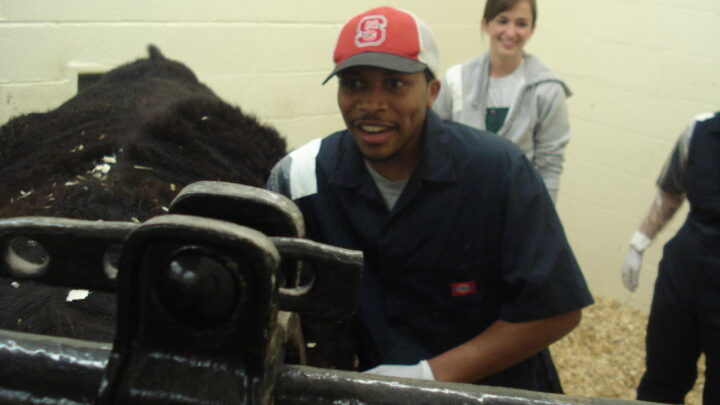
In veterinary school, he says, he thrived and bonded with his classmates in organizations including the Christian Veterinary Fellowship, Veterinary Business Management Association and Veterinary Students as One in Culture and Ethnicity.
Externships at a salmonella-focused lab at Washington State University, at policymaking and agricultural research branches of the USDA and at food processing plants across North Carolina helped him apply what he was learning.
“NC State encouraged us to get some really cool experiences outside of the college itself,” says Hawley, who also traveled to Costa Rica with an epidemiology class.
Despite his ample experience in food animal health, Hawley decided in his fourth year that he wanted to practice small animal medicine. He says that choice has made him a well-rounded veterinarian.
“I wouldn’t change anything about my experience at NC State,” he says. “Everyone’s going to get a lot of small animal experience, but you’re not going to get that degree of food animal experience and knowledge unless you were food animal-focused.”
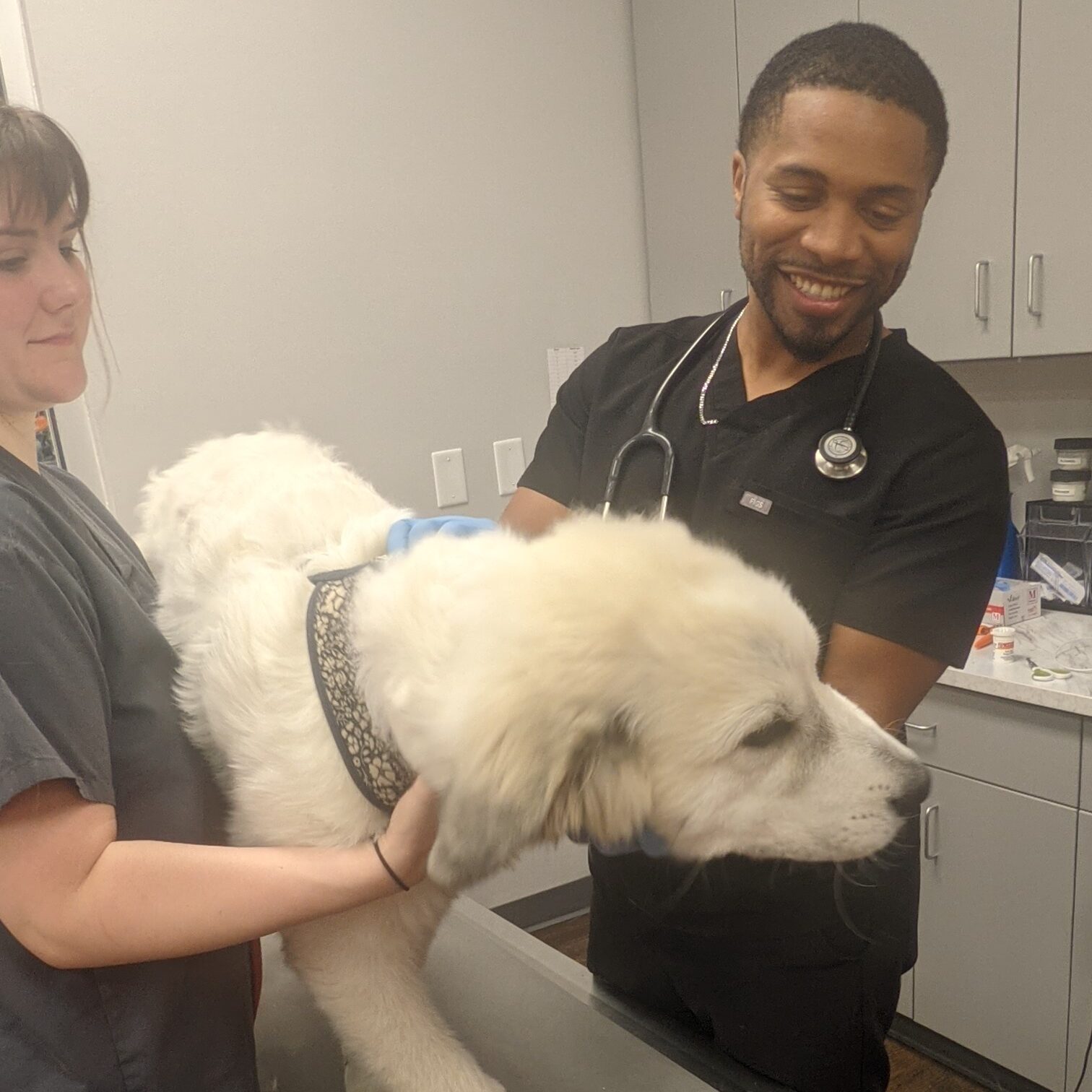
‘Doing the Work’
Once Hawley entered practice, he realized not every environment was as supportive and welcoming to veterinarians of color. Throughout his career, he has had some clients not believe he was a doctor and instead assumed white staff members were their veterinarian. He has also experienced instances of microaggressions and occasionally overt racism directed toward him or his team members.
“I always acknowledge it, but I’ve gotten really good at not allowing it to affect my mood and my attitude,” he says. “I never want to allow people who have no power to have power over me.”
Hawley says other veterinarians of color seek his advice on similar situations and on finding their place in veterinary medicine. Inspired to help them on a larger scale, he rebooted the NCAMV — an organization Cannedy also led — in 2017 and served as its president until 2022.
The organization provides a statewide support system for veterinarians from underrepresented groups to help them find mentorship, solidarity and continuing education opportunities. The group’s public directory also helps pet owners find providers they may feel more comfortable with, Hawley says.
The organization has a close relationship with North Carolina’s only veterinary college, too.
NCAMV’s scholarship fund has helped over 14 NC State students pursue their DVM degrees. All of NCAMV’s current board members are College of Veterinary Medicine alumni, and executives, including Hawley, have served on the college’s admissions committee to build diversity within each class.
“When you see a person of color doing something of excellence, it also empowers you,” Hawley says. “When you see people who have the same color skin as you who are great veterinarians, then that’s all the proof you need right there for your moments of doubt.”
Hawley is no stranger to moments of doubt. He co-founded Get MotiVETed in 2018 after overcoming a period of professional burnout by developing strategies for a work-life balance.
He sees community-building initiatives, like the groups that helped him during his training and the spaces he has helped create, as leading the charge in making veterinary medicine a more inclusive place where everyone can feel they belong.
“Every little piece matters, there is a lot of support and I know that that’s just going to change and grow over time,” Hawley says. “That’s why I’m optimistic for the state of diversity, equity, inclusion and belonging in veterinary medicine, because I know that people are doing the work.”

- Categories:
